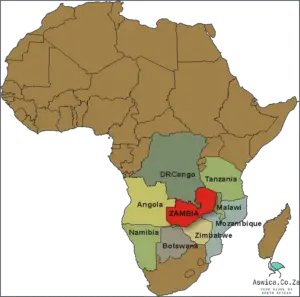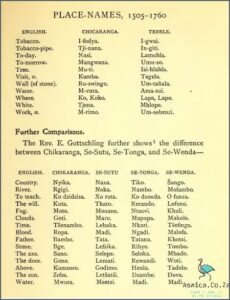
African wild dogs are canids indigenous to sub-Saharan Africa. These highly social animals typically live in packs of six to 20 individuals and maintain close bonds with one another. Though they once ranged widely across the continent, African wild dogs are now one of the most endangered species in the world, with only an estimated 6,600 individuals remaining in the wild.
Due to their declining numbers and the threat of extinction, there has been recent interest in the possibility of domesticating African wild dogs. While some experts believe it may be possible to tame individual animals, others contend that the species is too wild and aggressive to be domesticated. There is still much unknown about African wild dogs, making it difficult to say definitively whether or not they can be domesticated.
Contents
- 1 Can African Wild Dogs Be Domesticated
- 2 Historical Context of Domestication – Examples of other animals that have been domesticated
- 3 Challenges of Domesticating African Wild Dogs – Reasons why African Wild Dogs may not be suitable for domestication
- 4 Potential Benefits of Domesticating African Wild Dogs – Potential advantages of having an African Wild Dog as a pet
- 5 Conclusion
Can African Wild Dogs Be Domesticated
African Wild Dogs (also known as Painted Wolves) are some of the most unique and beautiful animals in the world. However, due to their high level of aggression and difficulty to tame, they cannot be domesticated. African Wild Dogs are built for hunting and living in packs, and it is unlikely that they could ever be adapted to living among humans and other domesticated animals. Even if they were able to be domesticated, the process would be long and difficult, and their natural behaviors and instincts may never fully be suppressed. Therefore, it is best to appreciate African Wild Dogs in their natural habitat and leave them to their wild ways.
Historical Context of Domestication – Examples of other animals that have been domesticated
The domestication of animals has been a long and interesting journey, with many species being domesticated over the centuries. From cats and dogs to horses and cows, humans have been able to successfully domesticate a wide range of animals. But what about African wild dogs? Could they be domesticated?
The historical context of domestication is one that has been studied for centuries. Domestication first started in the Middle East, where humans and animals began to coexist and form relationships. This led to the domestication of a wide range of animals, including cats, dogs, sheep, cattle, and even horses. As the practice spread to other parts of the world, other animals such as pigs and chickens were also domesticated.
African wild dogs, however, have not been successfully domesticated. This is likely due to the animal’s natural instincts and behaviors, which make it difficult for them to adjust to living with humans. African wild dogs are highly sociable animals that live in packs and hunt together. They are also fiercely independent, which makes them difficult to train and control. As a result, they are not suitable for domestication.
However, it is still possible that African wild dogs can be domesticated. With proper training and socialization, it is possible for them to adjust to living in a human environment. This would require an experienced handler who can provide the necessary training and socialization. It would also require an environment that allows the animals to remain in their natural habitat, while also giving them the opportunity to interact with humans.
Overall, it is unlikely that African wild dogs can be domesticated. However, with the right training and socialization, they may be able to adjust to living in a human environment. In any case, it is important to remember that domestication is a long and complex process that requires a great deal of time and effort.
Challenges of Domesticating African Wild Dogs – Reasons why African Wild Dogs may not be suitable for domestication

Domesticating African wild dogs is a difficult and often unsuccessful endeavor. This is due to a variety of factors, including the wild dogs’ instinctive behaviors, their need for large territories, and their social structure.
African wild dogs are carnivorous, and their diet is specialized for hunting wild prey. They are also highly territorial and require large areas to roam and hunt. When kept in captivity or in an enclosed area, they may become stressed, leading to health issues and possibly aggression.
In addition, African wild dogs live in large packs that consist of family members and other related individuals. They are highly social and rely on cooperative hunting and other cooperative behaviors to survive. This social structure makes them difficult to domesticate, as they may not form strong bonds with their human owners.
Finally, African wild dogs are easily startled and may be prone to fleeing if provoked. They are also very sensitive to changes in the environment, so any sudden changes could lead to fear and confusion. All of these factors make it difficult for them to adjust to domestication.
Despite the challenges of domesticating African wild dogs, some organizations are working to make it possible. They are providing appropriate enclosures for the dogs, as well as providing opportunities for interaction with humans. With proper care and training, African wild dogs may eventually be able to form strong bonds with their human owners and become more comfortable living in captivity.
Potential Benefits of Domesticating African Wild Dogs – Potential advantages of having an African Wild Dog as a pet
Domesticating African Wild Dogs (AWD) has become increasingly popular in recent years due to their intelligence and loyalty, as well as their potential to become great family pets. While the process of domestication can take several years, the potential benefits of domesticating an AWD are numerous.
First and foremost, domesticating an AWD can provide companionship and a loyal friend to its human caretakers. Although AWDs are naturally shy and may take some time to become comfortable around humans, they are highly social animals and can form strong bonds with their owners. Once domesticated, an AWD can provide its owner with years of companionship, offering an emotional connection that is often lacking in non-domesticated animals.
Additionally, AWDs are incredibly intelligent and can be trained to perform a variety of tasks. From performing tricks to acting as a guard dog, an AWD can be trained to do a variety of jobs if given the right amount of time and attention. This makes them an excellent choice for a pet, as they can provide their owners with a sense of safety and protection.
Furthermore, domesticating an AWD can provide its human owners with an opportunity to learn about the animal kingdom. By understanding an AWD’s natural behaviors and needs, owners can gain a better appreciation for the animal’s natural environment and the species as a whole. This can lead to a greater understanding of conservation efforts and the importance of protecting endangered species.
Ultimately, domesticating an AWD can be a rewarding experience for both the animal and its human caretakers. With their intelligence, loyalty, and social nature, AWDs can make wonderful companions and provide their owners with years of friendship and protection. For those interested in domesticating an AWD, there are many resources available to provide advice and guidance on how to properly care for the animal.
Conclusion
In conclusion, it appears that African Wild Dogs can indeed be domesticated, though the process is complicated and requires a great deal of effort and dedication. While African Wild Dogs have a reputation for being aggressive, they can, with proper training and socialization, become loving and loyal pets. However, it is important to remember that these animals are still wild and must be handled with caution, as they may revert to their natural instincts when faced with certain environmental stimuli. Ultimately, it is up to the owner to determine whether or not they are willing to take on the challenge of owning an African Wild Dog, as the process of domestication is not for the faint of heart.



